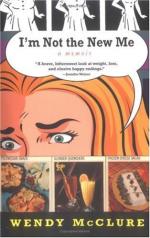“And the counterpart of the story in McCLURE’s MAGAZINE has happened here within a short time. Lewis Gerardin, a sailor, was released last April, after being detained six months. Several months before, Frank Blaha, a saloon-keeper, who committed the crime of murder in the second degree, managed to get bail. While Gerardin was held he received pathetic letters from his wife and family begging him to come home. They did not know why he was held, and he said that if they were to learn of his imprisonment they could not understand his innocence of crime. One day a letter was received from home, announcing that his favorite little son had died but a week before. The last words of the child called for his father. But Gerardin was not released until the prosecutor was ready to dismiss him.
“Such possibilities are a disgrace to any community that tolerates such a horrible law or such a feeble administration of it, and such callousness to human suffering that it will not save these innocent victims from its outrageous injustice. When to this brutality are added the comparative safety of the criminal, and the vile jails and the vile inmates with whom young boys and girls and honest men and decent women are thrown for the crime of witnessing a crime, it convicts the civilization of the age with a combination of stupidity and heartlessness that had better say nothing of the Czar of Russia or the ferocious Kurds. In its essential injustice and inhumanity it is not many removes from the lynchings of the South.”
THE REAL LINCOLN.
The “McClure’s Early Life of Lincoln,” which has just been published, is worthy of comment in these pages for several reasons.
1st. It contains no less than twenty portraits of Lincoln; and although this is only one-third of the number that will appear in the whole life, it is more than twice as many as have appeared in any previous life. Furthermore, most of the portraits are new to the public.
2d. There are a large number of entirely fresh documents, several of which are absolutely essential to a full understanding of Abraham Lincoln, and some of which make it necessary to revise our opinion of Lincoln’s career.
3d. It contains a remarkable record of the achievements of the Lincoln family, whose services to the country extended through nearly a century—a century which included the Revolutionary War and the Civil War. Lincoln himself was ignorant of much of the history we have given about his ancestors; but in the light of the facts set forth, his career is logical and easily understood.
4th. We have shown by new documents that Lincoln’s father was by no means the colorless individual we have hitherto understood him to be. The reminiscences of Christopher Columbus Graham, first published in this volume, together with records we have unearthed in Kentucky, show that Thomas Lincoln was the owner of a farm three years before his marriage, that he was a good carpenter, and that he was held in esteem by his neighbors; while according to Mr. Graham, Thomas’s brother Mordecai (uncle of Abraham Lincoln) was a member of the Kentucky legislature. His two sisters married into leading families.




